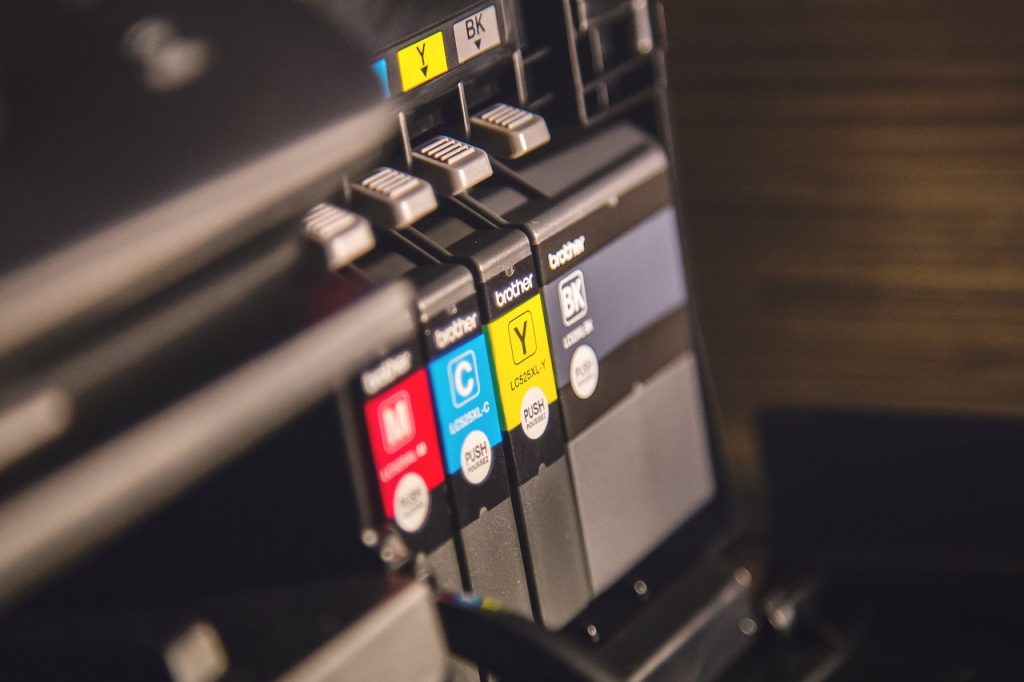3 Reasons to Recycle Your Printer Cartridges
 If you’re like many people, you’ve heard about the idea of recycling printer ink cartridges, but you’ve never actually done it. Maybe you even have a pile of old cartridges just waiting to be dropped off at a recycling center. Ahead, learn three important reasons why you should make recycling your used cartridges a priority.
If you’re like many people, you’ve heard about the idea of recycling printer ink cartridges, but you’ve never actually done it. Maybe you even have a pile of old cartridges just waiting to be dropped off at a recycling center. Ahead, learn three important reasons why you should make recycling your used cartridges a priority.
1- To Keep Plastic and Other Components out of Landfills
Ink cartridges are made of plastic, metal and other materials that can be reused and repurposed. Recycling cartridges keeps these materials that don’t readily biodegrade out of landfills. It could take 1,000 years for the parts of a discarded cartridge to decompose. But thanks to cartridge recycling, 40,000 pounds of materials are kept out of landfills each year.
A significant amount of oil is used to manufacture plastic, but recycling plastic reduces oil consumption. Giving plastic a second, third or fourth life uses less of this precious commodity than making each product with a fresh batch of plastic does. Along those same lines, compared to producing new plastic, recycling uses less of other resources, such as electricity and water, and it creates less pollution.
Sometimes, the remaining drips of ink in an old cartridge can even be removed and given a second life. For example, leftover printer toner can be put to use in asphalt roads!
Because recycling is an important part of many printer-supply companies’ environmental initiatives, they make it easy for you to return your used cartridges. Many manufacturers will accept empty cartridges, and they’ll even pay the shipping fee for you to mail them in. You may be able to send cartridges back in their original cardboard packaging.
2- To Make Remanufactured Cartridge Sales Possible
A remanufactured cartridge is one that is given a second life. After its first use, an ink cartridge is cleaned and refilled with ink. It can then be sold again. On average, these remanufactured cartridges are $8 cheaper than brand-new cartridges.
Ink companies put cartridges through careful inspections before preparing them to be refilled and returned to the market. Cleaning is an another important step in the process; this ensures that the new product will produce clear, crisp printing results.
Cartridges that need computer components, such as chips that communicate with the printer, receive these during the remanufacturing process. This allows remanufactured cartridges to work in name-brand printers.
Of course, if people do not recycle their cartridges, this process cannot happen. If you want to take advantage of the savings that remanufactured cartridges provide, you should do your part to recycle cartridges when you are finished using them.
3- To Support Charitable Causes
Recycling ink cartridges is good, but it’s even better when you can support important causes through your recycling efforts. Multiple companies run fundraising programs in which non-profit organizations can collect empty cartridges and trade them in for cash. When a charity gets useful funds and the burden on the environment is reduced, everybody wins!
If you are looking for a group in your community that runs a fundraising program like this, check with schools, churches, food banks and other non-profit charities. Call organizations directly to ask if they run such a program, or ask friends or your social media circles for leads.
Although these are popular fundraisers, it is possible that you won’t find a group in your area that runs one. In that case, consider starting a recycling fundraiser for an organization that is important to you. These programs can be simple to run and should require no start-up fees from the charity. Because most people use printer ink regularly, collecting cartridge donations can be easy. Money that your group earns through the program can fund books, supplies, scholarships, building upgrades or other necessities.
Thanks to manufacturer and charitable initiatives across the country, you can recycle your printer cartridges with ease. Whether you mail in your cartridges or drop them off at a collection spot, you can feel good, knowing that you’ve done your part to help take care of the planet. If you want to take your good deeds a step further, coordinate a recycling fundraiser for a charitable organization that is important to you.

















